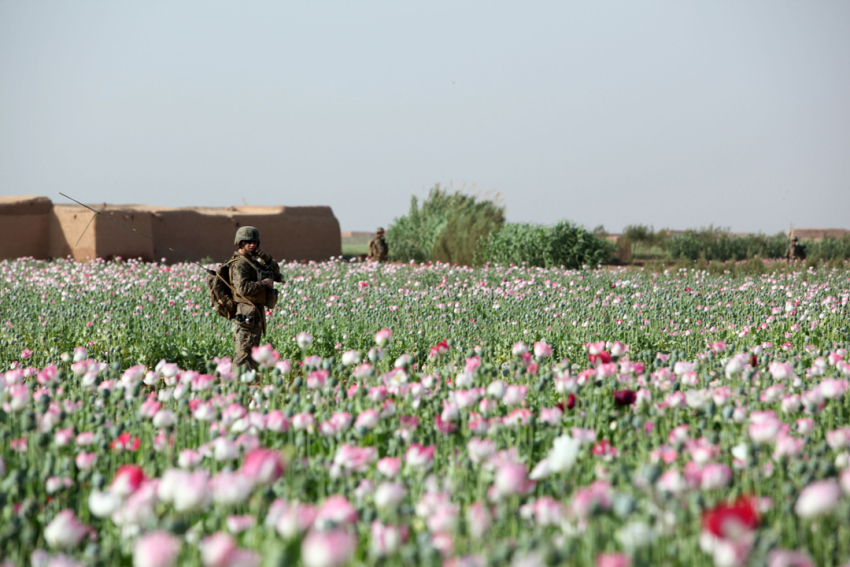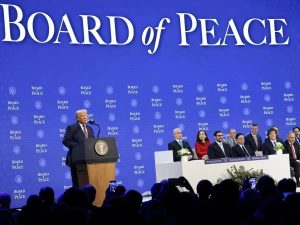Haji Juma Khan, described as Afghanistan’s biggest drug kingpin, has reportedly been released from a prison in the US after nearly 10 years last month, but terms of his release remain shrouded in mystery, an online news publication said.
Khan, who was arrested in 2008 in a devastating blow to Taliban and its relationships with drug traffickers, spent the prison term at the Metropolitan Correctional Center in Lower Manhattan. He was reportedly in plea negotiations after it was discovered he was working as an informant for the U.S. on Taliban operations and other drug smugglers.
Before his arrest, according to the US media, the alleged trafficker was also a longtime informer of the CIA and the DEA, received a large amount of cash from the US government. He also travelled to Washington in 2006 for clandestine meetings with CIA and DEA.
When the US was receiving reports that Khan, who belongs to Afghanistan’s Nimruz province, was on his way to becoming Afghanistan’s most important drug trafficker by taking over the operations of his rivals and funding Taliban leaders, a trap was set in Kabul that ultimately led to his arrest in Jakarta, Indonesia from where he was shifted to New York.
Khan is among the first defendants to be prosecuted under the US’ new 2006 federal narco-terrorism statute. When Khan was indicted in 2008, the prosecution was of the view that the trafficker will face a maximum sentence of life and a mandatory minimum sentence of 20 years in prison.
According to The Intercept, “Since 2012, the filings in Khan’s case have been under seal. As a result, it is impossible to determine whether he pleaded guilty to any of the charges against him, whether he received a sentence or was ordered to pay restitution to victims, or, upon his release last month, whether he was deported or allowed to remain in the United States”.
The report further added, “All this ambiguity suggests that Khan’s relationship with the government did not end with his arrest. The charges in the initial indictment carried a mandatory minimum sentence of 20 years. His release signals that he likely cut another deal, offering cooperation in the hope of obtaining a reduced sentence. Both the office of the U.S. Attorney for the Southern District of New York and the DEA declined to discuss Khan’s release”.
According to the United States Attorney Southern District of New York, the Afghan drug trafficker “charged with conspiracy to distribute narcotics with intent to support a terrorist organization.
It said, “Since at least 1999, KHAN led an international opium, morphine and heroin trafficking organization (the “Khan Organization”) based principally in the Helmand and Kandahar provinces of southern Afghanistan”.
It added, “KHAN has been closely aligned with the Taliban, which was designated by the President of the United States as a Specially Designated Global Terrorist Group in 2002. The Taliban’s totalitarian government controlled Afghanistan from the mid-1990s until 2001, when it was removed from power by the United States and allied military forces. Since the United States’ military intervention, the Taliban has operated an insurgency aimed at re-establishing its control of Afghanistan and forcibly expelling the United States and its allies through terrorist tactics such as suicide bombings, improvised explosive devices, shootings and kidnappings, which target American soldiers, Afghan political leaders, security contractors and civilians. The Taliban has publicly claimed credit for terrorist attacks, including a January 14, 2008 attack on civilians and employees at the Serena Hotel in Kabul, in which an American citizen was murdered”.
After his arrest, federal prosecutors sought to link Khan’s support for the Taliban to a suicide bombing, as well as a separate attack on a Kabul hotel that killed one American. A trap set by the top DEA official in Kabul ultimately led to his arrest.













